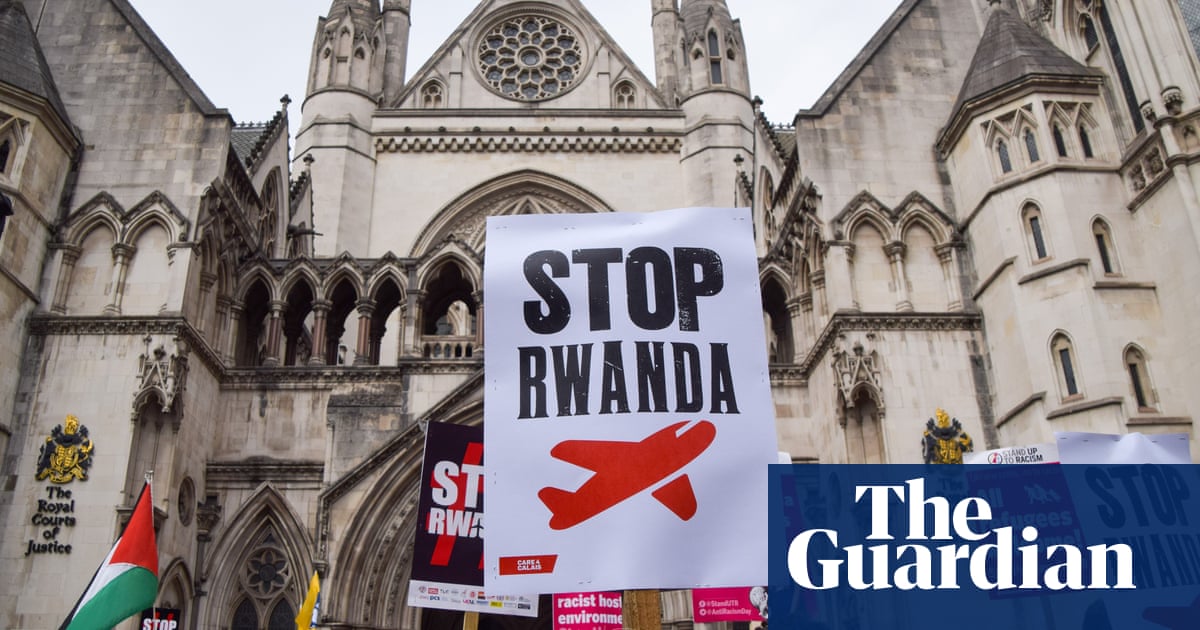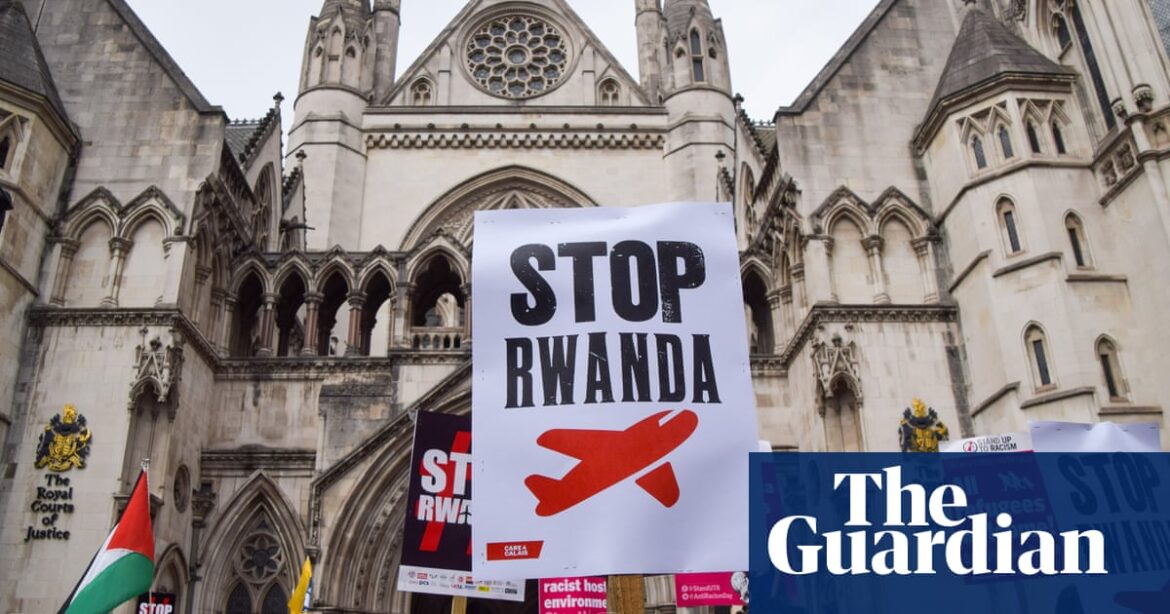
A recent parliamentary report asserts that the UK government’s contentious legislation regarding Rwanda, which designates the African nation as a safe destination for deportation, is fundamentally contradictory to Britain’s human rights responsibilities and violates international law.
Members of Parliament and members of the House of Lords from the joint committee on human rights, consisting of representatives from different political parties, have presented a thorough evaluation of the proposed Rwanda bill, which is currently moving quickly through the legislative process.
The purpose of the legislation is to challenge the decision made by the supreme court in November, which stated that Rwanda is not a secure destination for UK asylum seekers to be sent.
The legislation declares that Rwanda is a secure nation and that individuals sent there by the UK government will not be forcibly returned to an unsafe country. However, the report concludes that it is uncertain if this can truly be ensured in reality.
The recent report by legal and human rights professionals has joined numerous others in criticizing the UK government’s plan involving Rwanda. It has also brought up concerns about the safety, feasibility, and adherence to both domestic and international laws.
After carefully examining the bill, which will be discussed in the House of Lords on Monday, the report concludes that it is fundamentally inconsistent with the UK’s human rights responsibilities. It weakens the safeguards outlined in the Human Rights Act, violates certain aspects of the European Convention on Human Rights, and does not fully uphold the UK’s pledge to adhere to international agreements.
The article raises concerns regarding the Rwanda policy and cautions that the government’s efforts to bypass certain laws may jeopardize the UK’s hard-earned reputation for upholding the rule of law and human rights.
The statement asserts that the bill’s significant lack of judicial review undermines the constitutional responsibility of domestic courts to hold the executive branch accountable.
Liberty, a human rights group, presented evidence stating that even if a court were to hear evidence of Rwanda’s unsafe conditions, it would have to ignore it and pretend it didn’t exist.
The committee gathered input from legal professionals, scholars, and non-governmental organizations. The vast majority stated that the legislation was not in line with human rights legislation.
The committee inquired about the safety of sending asylum seekers to Rwanda, based solely on the statement in the bill. After hearing from a majority of witnesses, it was determined that the answer was negative.
The committee noted that for the second time within a year, ministers were unable to assure that a bill would likely uphold the UK’s international obligations outlined in the European Convention on Human Rights when it was presented.
Joanna Cherry MP, the chair of the committee, stated that this legislation aims to eliminate important protections against persecution and violations of human rights, including the fundamental right to seek justice in a court of law. She believes that this bill is fundamentally opposed to human rights and cannot be salvaged by any amendments.
“This isn’t just about the rights and wrongs of the Rwanda policy itself. By taking this approach, the bill risks untold damage to the UK’s reputation as a proponent of human rights internationally. “
A representative from the Home Office stated: “We are dedicated to addressing this significant global issue by implementing bold and creative solutions, and the Rwanda program is effectively accomplishing this. The legislation and accompanying treaty are the most effective means of expediting flights to Rwanda.”
Rwanda is a secure nation that is committed to aiding refugees. It currently accommodates over 135,000 individuals seeking asylum and is prepared to assist in relocating them and assisting with their resettlement.
Source: theguardian.com



